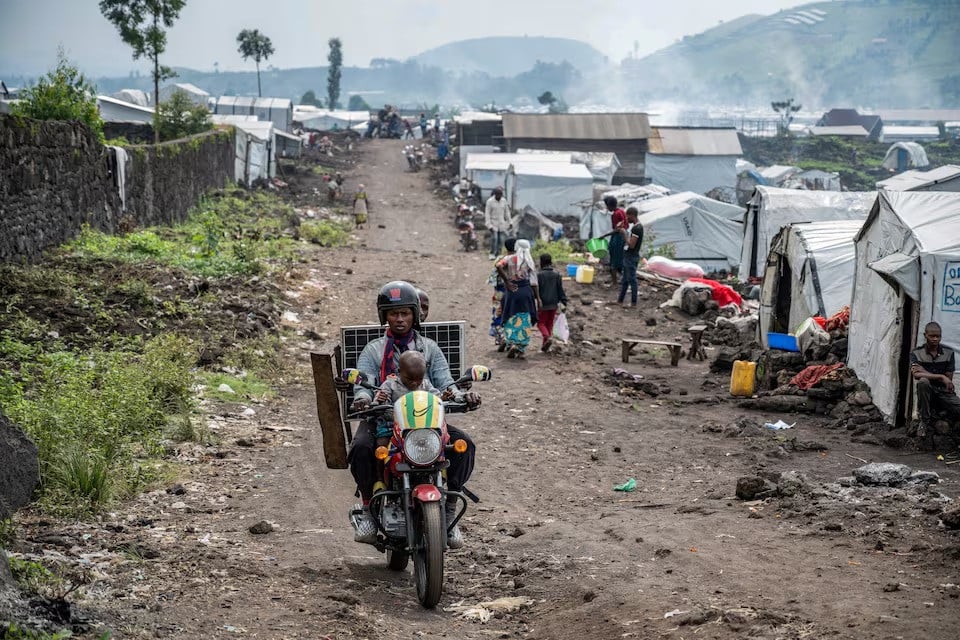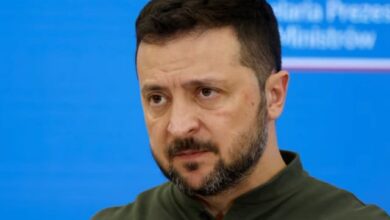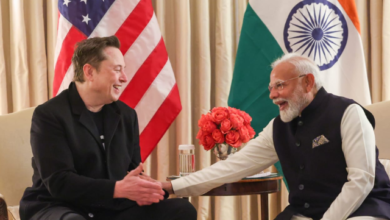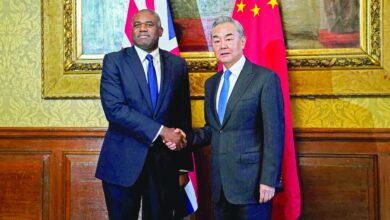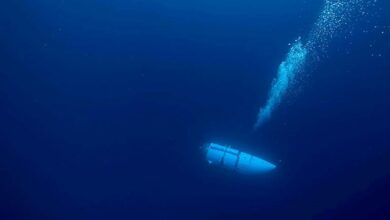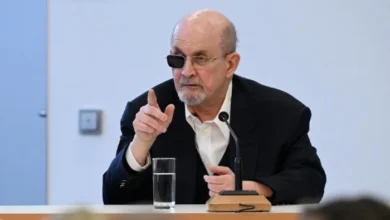M23 fighters and Rwandan troops entered the DR Congo provincial capital of Bukavu on Friday, security and humanitarian sources said.
The fighters and their Rwandan allies entered the eastern city of around one million people, the capital of South Kivu province, meeting virtually no resistance after having seized the region’s main airport, the sources said.
Congolese President Felix Tshisekedi slammed what he said were neighbouring Rwanda’s “expansionist ambitions” in the vast mineral-rich region, with Kigali’s troops backing the anti-government armed group.
A government source told AFP that Tshisekedi will not attend an African Union summit that Ethiopia is to host Saturday and Sunday as “he must closely follow the situation on the ground”, owing to the day’s dramatic developments.
Earlier, as the M23 and Rwandan troops closed inexorably in on Bukavu’s outskirts, shops and businesses had closed in the city while frightened civilians fled as African leaders urged an immediate ceasefire in the escalating conflict.
Fears of violence in Bukavu prompted an urgent appeal by civil groups to Congolese troops not to fight in the city.
M23 fighters met little resistance as they seized the region’s main airport while headed for Bukavu, security sources said.
An upsurge in violence in the restive region has sparked fears of a wider regional conflict, as a number of DRC’s nine neighbours and South Africa already have military boots on the ground.
Bukavu previously fell to soldiers who deserted the Congolese army in 2004 and its capture effectively gives the M23 control of the vast Lake Kivu area, which stretches the length of the border with Rwanda.
Fighting erupted after a temporary lull earlier this week, and African leaders convened a crisis meeting Friday before a full summit of African Union leaders this weekend.
“The ceasefire must be observed,” outgoing AU chair Moussa Faki Mahamat told AFP in the Ethiopian capital, Addis Ababa.
“Military campaigns are not going to solve these problems. There is a general mobilisation of Africa today on this issue.”
But Tshisekedi — a notable absentee from Friday’s meeting — pointed the finger at Rwanda for the escalation and urged “decisive” international sanctions against Kigali.
“What’s needed is to blacklist the real culprit of this situation: Rwanda,” he told world leaders at the Munich Security Conference.
“We will no longer put up with our strategic resources being plundered for the benefit of foreign interests under the complicit gaze of those who feed on chaos.”
Kinshasa accuses Kigali of wanting to steal the region’s abundant natural resources, including rare earth minerals used in electronic batteries and other devices such as mobile telephones, as well as gold.
Rwanda denies the claim and maintains its national security is under threat from armed groups, in particular the FDLR, created by former Hutu leaders in the 1994 genocide against Tutsis.
Both countries have recalled their ambassadors while the DRC has shut its airspace to Rwandan aircraft.
Nearly 3,000 people have been killed in the latest violence, UN estimates say.
Parts of Goma, which the M23 seized late last month, are still without water, forcing locals to collect supplies from Lake Kivu, where bodies from fighting in the city have been recovered.
The UN humanitarian agency OCHA has warned of a cholera outbreak, while the UNHCR refugee agency has said lack of access to the displaced and the targeting of infrastructure are hampering relief efforts.
A spokeswoman urged all parties to stop attacks on civilian infrastructure and guarantee unhindered humanitarian access.
Hundreds of thousands of people have fled the fighting and been forced into overcrowded and unsanitary camps on the edge of Goma, where dozens of mpox patients are being treated in hospital isolation units, the World Health Organization said.

